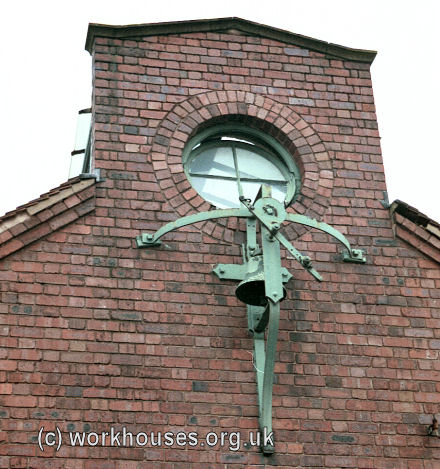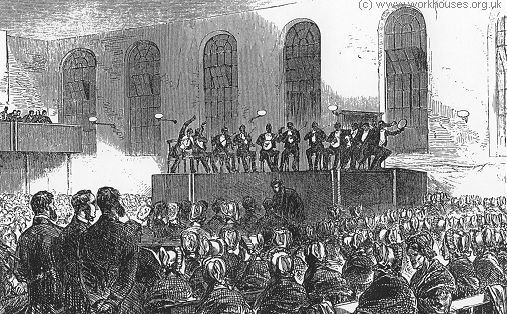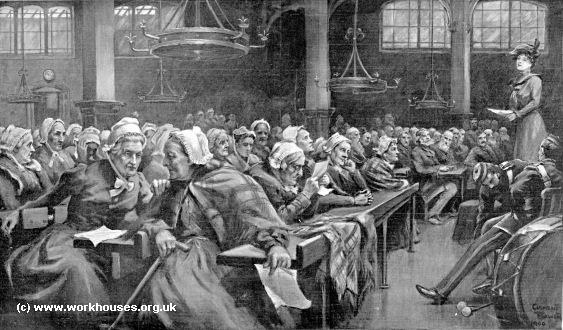The Daily Routine
The daily routine for workhouse inmates prescribed by the Poor Law Commissioners in 1835 was as follows:
| Hour of Rising. | Interval for Breakfast. | Time for setting to Work. | Interval for Dinner. | Time for leaving off Work | Interval for Supper. | Time for going to Bed. | |
| 25 March to 29 September | 6 o'clock. | From ½ past 6 to 7. | 7 o'clock. | From 12 to 1. | 6 o'clock. | 6 to 7. | 8. |
| 29 September to 25 March | 7 o'clock. | From ½ past 7 to 8. | 8 o'clock. | From 12 to 1. | 6 o'clock. | 6 to 7. | 8. |
Half an hour after the workhouse bell was rung for rising, the Master or Matron performed a roll-call in each section of the workhouse. The bell also announced meal breaks during which the rules required that "silence, order and decorum shall be maintained" although from 1842 the word "silence" was dropped.

The Stourbridge workhouse bell.
© Peter Higginbotham.
Communal prayers were read before breakfast and after supper every day and 'Divine Service' performed every Sunday, Good Friday and Christmas Day. These were also the days when no work, except the necessary household work and cooking, was performed by the inmates.
The use of the time between 7pm and 8pm was unspecified and was no doubt often used as an informal recreation period. From the 1860s, most workhouses received donations of books and magazines for the inmates' use. Workhouses also started to host occasional talks and musical entertainments, often performed by visiting groups such the one illustrated below by the "Delaware Minstrels" (a group of local bank clerks) at the Bethnal Green workhouse in 1867.

The Delaware Minstrels at Bethnal Green workhouse, 1867.
© Peter Higginbotham
In 1901, the "National Sunday League" put on a Sunday concert for the inmates of Holborn's City Road workhouse.

Holborn City Road workhouse Sunday concert, c.1901.
© Peter Higginbotham.
Unless otherwise indicated, this page () is copyright Peter Higginbotham. Contents may not be reproduced without permission.


